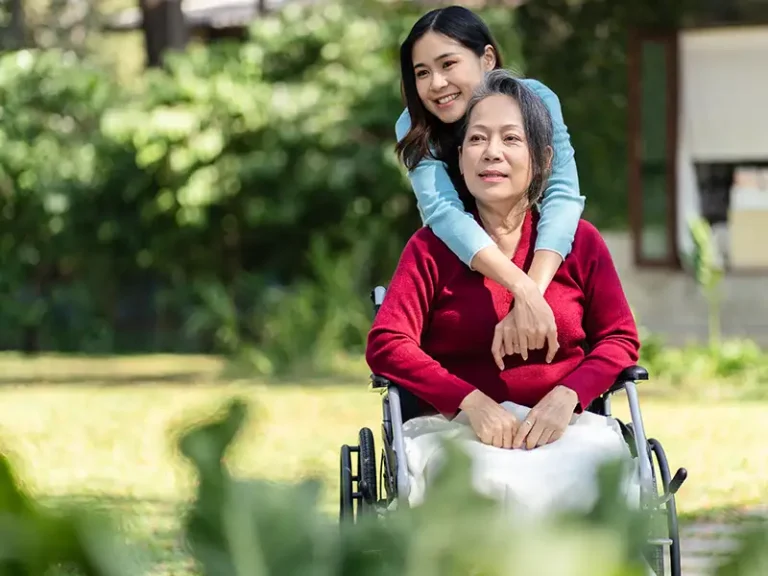NDIS National Disability Scheme
What is the National Disability Insurance Scheme?
The NDIS National Disability Scheme was implemented in 2013 and provided a different approach to assisting individuals with long-lasting and severe disabilities. Even with preliminary testing, carrying out the program has proven difficult, especially for individuals with disabilities related to mental health issues. In 2019, researchers at Flinders University collaborated with the National Disability Insurance Agency (NDIA) to create an improved access pathway for individuals with psychosocial disability to the NDIS. The purpose of this paper is to offer instructions on the proof needed to show that an individual has a substantial and enduring psychosocial disability in order to qualify for the NDIS.
The NDIS offers assistance to individuals with disabilities, as well as their families and caregivers. Individualised support packages are the primary element of the NDIS for qualified individuals with disabilities. The NDIS also plays a more extensive part in supporting individuals with disabilities to:
- Obtain regular services, such as healthcare, housing, and schooling
- Utilise community resources like sports clubs and libraries
- Maintain personal connections like family and friends

The Aim of the NDIS
The NDIS National Disability Scheme will change how individuals with disabilities receive the assistance required to reach their objectives and engage actively in society. The goal of the NDIS is to assist individuals with enduring and substantial disabilities that impact their participation in daily tasks. This is accomplished by determining the necessary disability assistance to aid individuals in reaching their life objectives. This could involve increased autonomy, participation in society, learning, job opportunities, and overall health and wellness. The NDIS provides individuals with disabilities increased freedom and authority in determining the manner, timing, and location of their support services, ensuring they receive the necessary assistance throughout their lives. The NDIS also places emphasis on early intervention, which can lessen the effect of disability on you or your child by receiving support at an early stage. Individuals with a mental health condition can also receive assistance from the NDIS. A psychosocial disability is characterised by substantial and enduring functional limitations associated with mental health problems.
What Individual Supports are available?
Funding may be provided for supports in education, employment, social participation, independence, living arrangements, and health and wellbeing. Funding options could consist of:
- Daily routines and tasks
- Transportation for engagement in various community, social, economic, and daily life functions
- Workplace support assists a individual in obtaining or retaining a job in the competitive job market, either independently or with assistance.
- Therapy aids such as behavior assistance
- Assist with chores at home to help the individual keep up with their living space
- Assistance from trained individuals in organizing evaluations, installation, and instruction on aids or equipment
- Design and construction of modifications for the home
- Rehabilitation devices and aids
- Customising vehicles
The NDIS National Disability Scheme website offers further examples of the types of assistance that may be offered to participants.
NDIS recipients have discussions with the NDIA to determine a group of supports that are deemed suitable and essential to achieve their objectives. These are later added to their ‘NDIS plan’. According to the NDIS Act, participants have the right to exercise ‘choice and control’ in achieving their goals and in planning and receiving their supports’. The participant, NDIA, a registered plan management provider, or a nominee of the participant can manage funds in an NDIS plan. Registered providers offer supports in the competitive, self-sustaining market envisioned by the NDIA.
Services
In 2024, proposed changes were made to the NDIS scheme following a series of allegations of funding abuse a list has been released outlining draft uses and disallowed service provisions.
NDIS Support List
NDIS Accommodation and Tenancy Assistance
Supports that provide guidance, encouragement, or help to an NDIS Individual in carrying out activities that guarantee they get a suitable housing. This could involve helping a participant with applying for a rental property or completing the process, fulfilling responsibilities according to the NDIS participant’s lease contract.
NDIS Assistance in Coordinating or Maintaining Life Stages
Provides help in setting up support services in the individual’s residence or surrounding neighbourhood. Providing Support coordination, mentoring, peer support, and individual assistance are all part of the offering. Even developing skills such as going to appointments, shopping, paying bills, participating engaging in social events and staying connected with people.
NDIS Assistance with Daily Life Tasks
Helping disable individuals with daily tasks in a communal living setting with an emphasis on enhancing the skills of every person to live independently as much as they can, such as in the short term accommodation.
NDIS Providing Assistive Products for Household Tasks
Offering specialty items for personal care or safety like beds, restroom fixtures, specialised attire, and incontinence products and requirements.
NDIS Daily Personal Activity Support
Assistance with and/or monitoring of daily personal tasks to help facilitate independence for the disabled participants and allowing participants to have the ability to live independently in various settings, such as including, but not restricted to, the participant’s residence.
NDIS Daily Care and Life Skills Development
The focus is on training and developing daily living and life skills. Here basically actions are performed by a participant or their caregiver to enhance their capacity for independent living. They provide NDIS participant as much independent support as possible, which will improve the capacity of the individual.
NDIS Disability Health Related Support
Disability-related health supports are integrated as a routine part of care. Participant’s everyday life is affected by the consequences of their disability. This involves incontinence, difficulty swallowing, breathing-related, diet, managing diabetes, seizures. Specialised services for foot and wound care, including pressure care aids. There are also Aids for individuals with intricate communication needs or difficult behaviors while utilizing healthcare services, such as hospitals and residential treatment centers.
NDIS High Intensity Daily Personal Activities
Assistance and/or monitoring of daily tasks to help a participant with complicated requirements for living independently in various settings including, but not restricted to, the participant’s residence. These aids are given by a worker who has extra certifications and expertise or experience that is pertinent to the participants’ intricate requirements.
NDIS Assistance with Household Tasks
Providing assistance where an NDIS participant has Inability to complete essential household chores due to his or her limitations. Caring them with tasks such as cooking and bringing meals, taking care of house or garden, cleaning and washing clothes.
NDIS Specialist Disability Accommodation
Specialised housing for individuals with disabilities.
(a) Refers to housing options designed for individuals in need of specialised accommodation and providing them assistance in delivering services that meet the individual’s specific needs which they could not complete due to functional limitations
(b) Excludes assistance provided to the individual while residing in the accommodation.
NDIS Specialist Support Coordination
NDIS Specialist Support Coordination is a service that helps people with disabilities navigate the National Disability Insurance Scheme (NDIS) and access the support they need. Specialist Support Coordinators work closely with individuals to understand their goals and develop a plan to achieve them. They also help connect people with the right services and providers and ensure that their NDIS funding is used effectively. By providing personalised support and guidance Specialist Support Coordination helps individuals maximise their NDIS benefits and improve their quality of life.











